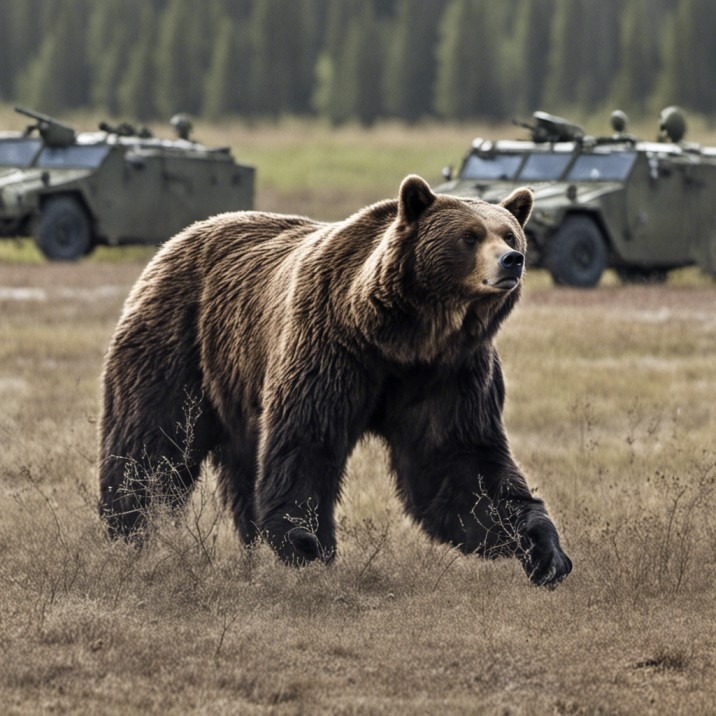
Historical Context of NATO-Russia Relations
September 24, 2023
The history of NATO-Russia relations has been characterized by alternating periods of cooperation and tension since the end of the Cold War. When the Soviet Union collapsed in 1991, there was hope that Russia would integrate with Western institutions like NATO. However, NATO’s expansion into former Soviet states and more assertive military posture have been perceived by Russia as provocative and threatening.
In the 1990s, NATO and Russia established the NATO-Russia Council to facilitate cooperation. Russia even participated in some NATO-led operations. However, tensions began rising in the 2000s as NATO started expanding eastward. The first round of expansion in 1999 brought Poland, Hungary and the Czech Republic into NATO. This was followed in 2004 by the accession of the Baltic states and other former Soviet republics. From Russia’s perspective, this constituted a betrayal of alleged Western assurances that NATO would not expand.
Russia has seen NATO enlargement as an encroachment into its traditional sphere of influence. It has argued that NATO’s open-door policy is provocative and ignores Russia’s security interests. The 2008 NATO Bucharest Summit declaration that Ukraine and Georgia would eventually become members was vehemently opposed by Russia. When those two countries were embroiled in conflicts with Russian-backed separatists in 2008 and 2014, Russia viewed it as Western encroachment in its backyard.
History shows that Moscow has perceived NATO’s enlargement and military footprint close to Russia’s borders as provocative. It has stoked suspicions about Western intentions and contributed to the deterioration of NATO-Russia relations.
Instances of Perceived NATO Provocations
There are several instances where Russian officials have accused NATO of provocative actions that threatened Russia’s security:
– NATO’s bombing campaign against Serbia in 1999 was done without UN approval and was seen by Russia as threatening.
– Russia regarded the US withdrawal from the Anti-Ballistic Missile Treaty in 2002 to build missile defence systems as provocative.
– NATO’s 2008 Bucharest Summit declaration that Ukraine and Georgia would eventually join NATO angered Russia, which sees those areas as part of its sphere of influence.
– The alliance’s support for the 2014 Euromaidan protests in Ukraine that ousted a pro-Russian leader was viewed by Moscow as instigated by the West.
– Increased NATO troop deployments and military exercises in Eastern Europe and the Baltics since 2014 have been seen as provocations by the Kremlin.
– Russia perceived NATO troop buildups in Poland and the Baltics in 2022 as threatening and part of the reason for invading Ukraine.
– NATO naval forces exercising in the Black Sea near Russian waters, especially after 2014, have been seen as needlessly provocative by Moscow.
From Russia’s viewpoint, these NATO actions have disregarded its security concerns and strategic interests over the decades since the Cold War. They have contributed to suspicions about Western intentions.
Impact of NATO Expansion on Russia’s Security
NATO’s eastward expansion has profoundly impacted Russia’s strategic calculations and sense of security. Each round of enlargement has brought NATO military infrastructure closer to Russia’s borders. This has stoked historical fears of invasion and encirclement.
Specifically, Moscow perceived the NATO expansion into the Baltic states and the prospect of Ukraine joining the alliance as direct threats. It meant a loss of Russia’s traditional buffer zone and ability to prevent hostile forces from getting too close to its heartland.
Moreover, integrating former Warsaw Pact states and Soviet republics into NATO created fears that the West was trying to isolate Russia. Moscow worried that NATO was trying to gain dominant security influence across the former Soviet space.
This perceived encroachment into its sphere of influence led Russia to become more assertive. After feeling sidelined during the NATO intervention in Kosovo, Russia has tried to reassert itself on the global stage. Its military interventions in Georgia and Ukraine are pushback against NATO expansion.
Overall, Russia has interpreted NATO’s enlargement as an offensive rather than a defensive policy. It has amplified Russia’s security dilemma and strategic vulnerability, making confrontation more likely.
NATO and Russian Strategic Responses
Both NATO and Russia have developed strategies and counter-strategies in response to perceived provocations by the other side since the end of the Cold War:
NATO Strategies:
– Enlarging membership to include former Soviet states and allies to expand Western influence.
– Increasing military exercises and troop deployments in Eastern Europe to deter Russian aggression.
– Developing ballistic missile defence systems in Europe to counter Russian nuclear threats.
– Maintaining dialogue through the NATO-Russia Council to avoid miscalculation and manage tensions.
– Imposing sanctions and suspending cooperation with Russia after its military interventions in Ukraine.
– Refusing to make concessions that would give Russia a sphere of influence or veto power over NATO policies.
Russian Strategies:
– Opposing further NATO enlargement through diplomacy and coercion against aspirant states.
– Developing anti-access and area denial capabilities to prevent NATO power projection near its borders.
– Intervening in conflicts involving Russian minorities in Georgia and Ukraine to counter Western influence.
– Increasing provocative military flights and naval deployments to signal resolve and test NATO reaction.
– Withdrawing from arms control treaties and threatening nuclear buildups to counter NATO missile defence.
– Cultivating ties with China and others to balance and constrain NATO’s global influence.
– Using disinformation campaigns and cyberattacks to undermine Western solidarity and sow discord within NATO.
This overview shows how action-reaction dynamics have characterised NATO-Russia interactions, with both sides pursuing deterrence and seeking strategic advantages. However, the result has been more confrontation and erosion of trust.
Case Studies of NATO-Russia Provocations
The accession of the Baltic states – Latvia, Lithuania and Estonia – to NATO in 2004 was vehemently opposed by Russia. It saw the move as an offensive act that threatened its security by extending NATO’s reach into a region Moscow considered its backyard.
In response, Russia has tried intimidating the Baltics with provocative military manoeuvres, cyberattacks, and disinformation campaigns. It has also allegedly abducted an Estonian intelligence officer across the border. From NATO’s perspective, increasing its troop rotations and air policing missions in the Baltics has been a defensive move. But Russia sees it as an offensive provocation.
Overall, the Baltic case illustrates how both sides can view the other’s actions as provocative even when they are meant to be defensive. This dynamic has increased tensions and the risk of miscalculation.
The NATO Intervention in Kosovo:
Russia saw NATO’s 1999 bombing campaign against Serbia over its repression in Kosovo as a provocative and illegal. It was done without UN approval and against a traditional Russian ally. Moscow felt sidelined and that its security interests were disregarded during the intervention.
In response, Russia has been more assertive about defending allies like Syria to avoid a “Libya scenario.” The Kosovo episode has also amplified Russia’s suspicions about Western intentions and its opposition to NATO enlargement. It was an early turning point toward increased tensions between Russia and the alliance.
The NATO-Russia standoff over Kosovo highlighted their divergent interests and views of European security. It marked a deterioration in relations and increased mistrust following a period of attempted cooperation in the 1990s.
In conclusion, the complex dynamics between NATO and Russia have been characterized by cycles of cooperation and confrontation since 1991. However, Moscow has perceived NATO’s enlargement and military posture close to Russia’s borders as provocative. In response, Russia has asserted itself aggressively. This action-reaction cycle has ultimately been counterproductive, stoking tensions and mistrust. Diplomatic solutions are needed to break the cycle and put NATO-Russia relations on a more sustainable footing.
More Tantalising Reads
Dow Jones Industrial Average Stocks Soar Slaughtering the Bears
Gold buying Spree Russia & Russian Strength?

China’s corruption crackdown targets both big & small officials
China Corruption: Fast & Furious crackdown
The Big Picture: Lower oil & energy prices
Crude oil price projections: will oil prices stabilize
The Middle Class Squeeze: 4.00 in 1973 equates to 22.41 today
Syria War News: It Is All About Blood, Guns & Money
For Many Americans Great Recession Never Ended
Is VIX pointing to a stock market crash in 2016?
Belt & Road Initiative: Taking China’s culture beyond borders
EU stands to benefit by Granting China free market status
China cuts rates to boost green energy demand



